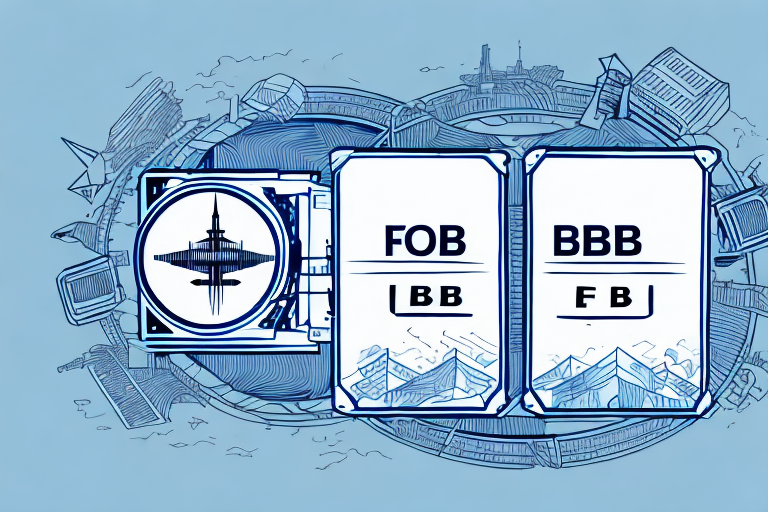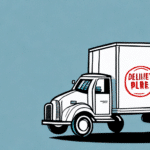Understanding FOB and FOD in International Trade
In the realm of international trade, mastering shipping terms is crucial for smooth and cost-effective transactions. Two essential Incoterms that often come into play are FOB (Free On Board) and FOD (Free On Destination). This article provides an in-depth analysis of these terms, exploring their definitions, advantages, disadvantages, and practical applications to help you make informed decisions in your global commerce operations.
Defining FOB and FOD
What is FOB (Free On Board)?
FOB stands for Free On Board and is a widely recognized Incoterm used in both domestic and international trade. Under FOB terms, the seller is responsible for the goods until they are loaded onto the shipping vessel. Once the goods are on board, the responsibility and risk transfer to the buyer.
What is FOD (Free On Destination)?
FOD stands for Free On Destination. Unlike FOB, FOD places the responsibility on the seller until the goods reach the buyer’s designated location. This term is particularly favored by buyers who prefer greater control over the delivery process.
Comparing FOB and FOD
Risk and Responsibility
The primary distinction between FOB and FOD lies in the allocation of risk and responsibility during the shipping process:
- FOB: Risk transfers to the buyer once goods are loaded onto the vessel.
- FOD: Seller retains responsibility until goods are delivered to the buyer’s specified location.
Cost Implications
Cost considerations also differentiate FOB and FOD:
- FOB: Generally less expensive for the buyer as they assume responsibility early.
- FOD: Potentially higher costs due to the seller managing delivery to the destination.
Advantages and Disadvantages
Advantages of FOB
- Widely recognized and easy to implement.
- Transfers risk early, reducing seller’s exposure.
- Cost-effective for buyers who manage their own shipping arrangements.
Disadvantages of FOB
- Buyer assumes risk once goods are on board, which may lead to potential losses during transit.
Advantages of FOD
- Seller retains control and responsibility until delivery, ensuring better handling.
- Reduces risk for the buyer, as the seller manages the delivery process.
Disadvantages of FOD
- Can be more expensive due to seller’s extended responsibility.
- Requires more coordination between buyer and seller.
Selecting the Right Incoterm for Your Business
Factors to Consider
Choosing between FOB and FOD depends on various factors:
- Control Over Delivery: Buyers desiring more control may prefer FOD.
- Risk Management: Sellers looking to minimize risk might opt for FOB.
- Cost Efficiency: Assessing which term aligns with your budget constraints.
Industry-Specific Applications
Different industries may favor one term over the other:
- Manufacturing: Often prefers FOB to streamline shipping processes.
- Retail: May lean towards FOD to ensure goods are delivered in optimal condition.
Legal and Risk Considerations
Understanding Legal Implications
Both FOB and FOD have specific legal implications that can impact liability and responsibility during shipping. It is crucial to consult with legal professionals to ensure contracts clearly define these terms, thereby avoiding potential disputes.
For detailed guidance, refer to the International Chamber of Commerce’s Incoterms rules.
Mitigating Risks
Implementing strategies to mitigate risks associated with FOB and FOD is essential:
- Utilize insurance to protect against potential losses.
- Ensure clear communication channels between buyer and seller.
- Regularly review and update contracts to reflect current trade practices.
Practical Tips for Implementing FOB and FOD
Effective Contract Negotiation
When negotiating contracts, clearly define the chosen Incoterm and outline respective responsibilities. This clarity helps prevent misunderstandings and ensures both parties are aligned.
Supply Chain Coordination
Successful implementation requires seamless coordination within your supply chain. Ensure all stakeholders are aware of their roles and responsibilities under the selected Incoterm.
Leveraging Technology
Utilize supply chain management software to track shipments, manage documentation, and enhance communication between parties, thereby streamlining the process whether you choose FOB or FOD.
Conclusion
Choosing between FOB and FOD is a strategic decision that can significantly impact your international trade operations. By understanding the definitions, advantages, disadvantages, and legal implications of each term, you can make informed choices that align with your business objectives and risk management strategies. Always consult with trade experts and legal advisors to tailor your approach to your specific business needs.
For further reading on Incoterms and international shipping, visit the International Chamber of Commerce and explore comprehensive resources that can aid in optimizing your global trade practices.




















